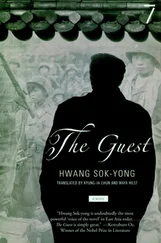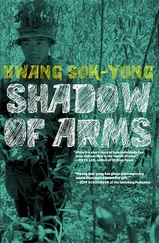Hwang Sok-yong
Princess Bari
Many small stars fill the blue sky, and many worries fill our lives.
Jindo Arirang [Korean folk anthem, variation from the Jindo region in South Korea]
I was barely twelve when my family was split apart.
I grew up in Chongjin. We lived in a house at the top of a steep hill overlooking the sea. In the spring, clusters of azalea blossoms would poke out from among the dry weeds, elbowing each other for space in the vacant lots, and flare a deeper red in the glow of the morning and evening sun as Mount Gwanmo, still capped with snow and cloaked in clouds from the waist down, floated against the wide eastern sky. From the top of the hill, I watched the lumbering steel ships anchored in the water and the tiny fishing boats sluggishly making their way around them, the rattle of their engines just reaching my ears. Seagulls shattered the sunlight’s reflection on the surface of the water, which glittered like fish scales, before wheeling off into the sun itself. I used to wait there for my father to come home from his job at the harbour office or for my mother to come back from market. I would leave the road, scramble up a steep slope and squat at the edge of the cliff, because it was a good spot to watch out for them, but also I just liked looking down at the sea.
We had a full house: Grandmother, Father, Mother, my six older sisters. Most of us had been born within a year or two of each other, which meant our mother was pregnant or nursing for practically fifteen years straight. The moment one girl popped out, she was waddling around with the next. My two oldest sisters never forgot the fear that filled our house each time our mother went into labour.
Luckily, Grandmother was by her side each time, acting as midwife. They told me our father used to pace back and forth and chain-smoke outside the door or out in the courtyard, but after the third girl was born, whenever our mother showed signs of going into labour, he stayed late at work instead and even volunteered for the night shift. The anger he’d been suppressing finally exploded when Sook, the fifth girl, was born. That morning, Mother and Grandmother were in the main room off the kitchen, bathing newborn Sook in a tub of warm water, when Father returned home from night duty. He opened the door, took one look inside, and said: “What’re we supposed to do with another of those?” He yanked little Sook from their arms and shoved her head under the water. Shocked, our grandmother hurriedly fished the baby from the tub. Sook didn’t cry, but just spluttered and coughed instead as if she’d swallowed too much water and couldn’t breathe. When the sixth girl, Hyun, was born, Jin, the oldest, wound up with a brass bowl of kimchi on her head as she was coming back from the outhouse just as our father vented his anger by tossing the breakfast tray into the courtyard.
So what do you figure happened when I was born? Jin told me: “We all crowded into the corner of the kids’ room and shivered in fear.” After they heard the newborn’s first cry, Sun, my second-oldest sister, crept out to investigate, only to return pouting and crying.
“We’re doomed! It’s another girl.”
Jin warned everyone: “Not a peep out of any of you, and don’t even think about stepping foot out of this room until Father gets home.”
Grandmother, who caught me when I was born, wrapped me in a blanket, my skin still covered in blood and fluid, and then sat vacant-eyed on the dirt floor of the kitchen, too much at a loss to even think of boiling up a pot of seaweed soup for our mother. Mother cried quietly to herself; then, after a little while, she picked me up and carried me out of the house to a patch of woods a long way from our neighbourhood where no one ever went. There she tossed me into some dry underbrush among the pine trees, and covered my face with the blanket. She probably meant for me to smother to death, or to freeze in the cold morning wind.
When Father got home, he opened the door without a word. Of course, he could tell from the mood in the house — Mother had the blanket up over her face and was unresponsive, and Grandmother just coughed drily now and then from her spot in the kitchen — that he had no hope of ever getting a son, and he turned heel and left. Mother and Grandmother each stayed put in their stupors, one inside and one out in the kitchen, until the sun was high in the sky. Finally, Grandmother went back inside.
“What happened to the baby?”
“Don’t know. Must’ve crawled away on its own.”
“Why, you threw it out! You’ll be struck dead by lightning for this, you stupid girl!”
Grandmother searched the house inside and out, but I was nowhere to be found. Fearful of how Heaven might curse them, and filled with pity for her daughter-in-law and poor little granddaughters, she filled a porcelain bowl with cold water, placed it on a small, legged tray and sat out back, rubbing her palms together in prayer.
“Gods on Earth, gods in Heaven, I pray to you, lift the bad fortune from this home, bring that baby back in one piece, turn the poor mother’s heart, calm the father’s anger and keep us all safe.”
Grandmother finished praying and searched the house again and all over the courtyard and the surrounding neighbourhood, before finally giving up and returning home. She sat despairingly on the twenmaru , the narrow wooden porch that lined the house, when our dog Hindungi suddenly poked her head out of the doghouse and stared up at her. As Grandmother turned to look at the dog, her eye caught a tiny corner of the blanket she’d wrapped me in. Hoping against hope, she dashed over to the doghouse and peeked inside: Hindungi was lying down, and there I was, bundled up and nestled between her paws. Grandmother said my eyes were closed, and I was snuffling in my sleep. Hindungi must have followed our mother when she left the house to get rid of me, slinking behind at a careful distance, and then caught my scent and hunted through the underbrush before picking me up in her jaws and carrying me home.
“ Aigo , our Hindungi is such a good dog! This child was sent to us from Heaven, I’m sure of it!”
Maybe that’s why I felt closest to my grandmother and our dog when I was little. Hindungi was named for the white fur that her breed, Pungsan, was known for, but I myself didn’t have a name until my hundredth day, when babies are said to be fully among the living and I was sure to survive infancy. It hadn’t occurred to anyone to give me one. Later, after our family was dispersed in all directions and my grandmother and I were living in that dugout hut on the other side of the Tumen River, she told me a story she’d heard long, long ago from her great-grandmother. It was the story of Princess Bari, whose name meant “Abandoned”. She would always finish the story by singing the last lines to me:
“ ‘Throw her out, the little throwaway. Cast her out, the little castaway.’ So that’s how you got the name ‘Bari’.”
In any case, for a long time I didn’t have a name. Grandmother brought it up while we were eating one day. We were sitting at the round tray with Mother, after Father and Grandmother were served their food at the square tray.
“I mean, really!” Grandmother confronted Father out of the blue. “Why doesn’t that baby have a name yet?”
Father slowly ran his eyes over the children clustered around the table, as if counting us one by one.
“Well,” he said, “I know there are enough girl names for twins, all the way up to sextuplets … but what am I supposed to do after that? I only know so many characters.”
“You mean to say you went to college and can speak Chinese and Russian, but you can’t come up with a name for your baby girl?”
Читать дальше












